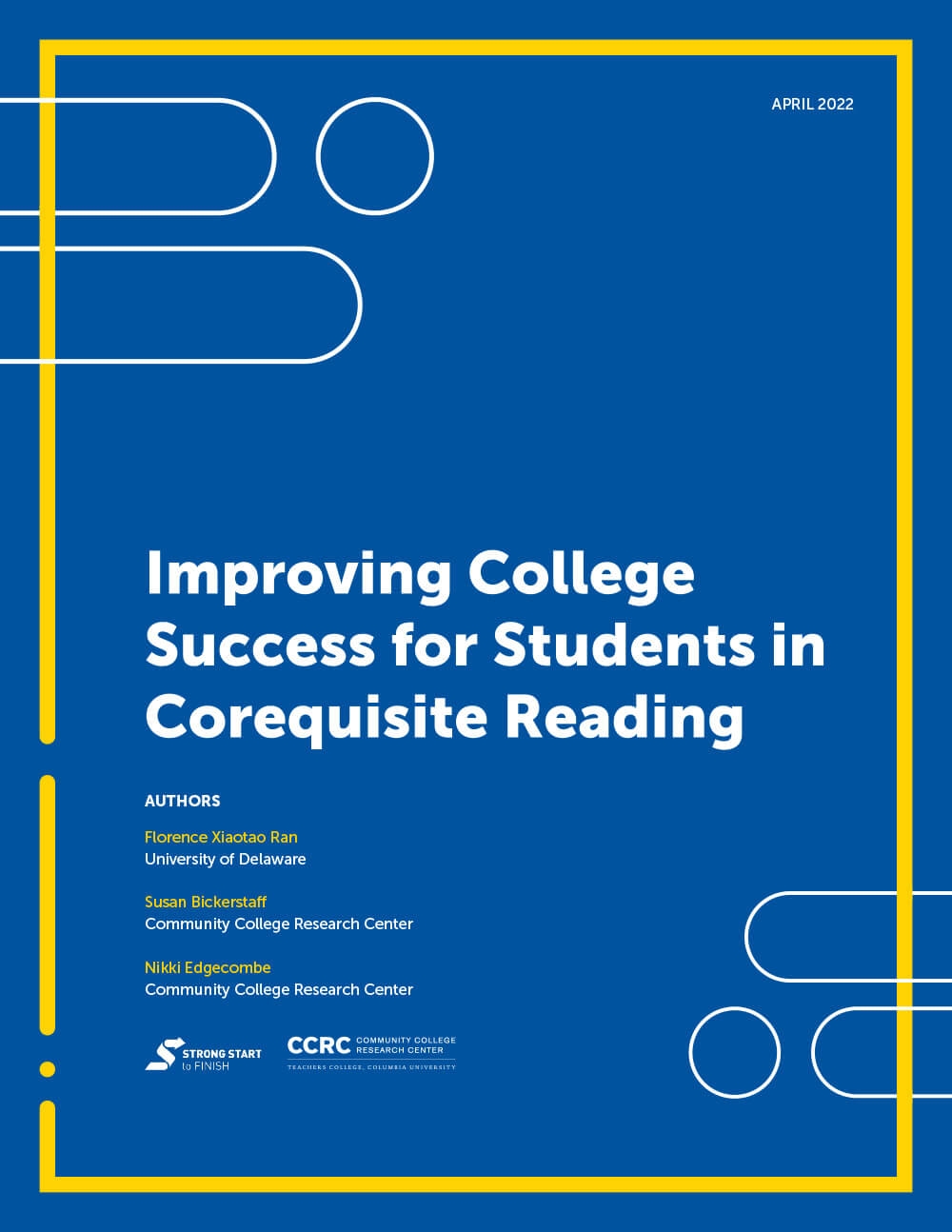
In a corequisite approach to developmental education, students enroll in a college-level course paired concurrently with a support course designed to address student learning needs in a given subject. This report, sponsored by Strong Start to Finish, examines early college outcomes of students placed into corequisite reading courses at the 13 community colleges in the Tennessee Board of Regents (TBR) system. The authors investigate how outcomes changed since TBR colleges adopted a corequisite approach in reading and look at differences in outcomes by college-level course pairings and course features, including delivery format (online, hybrid, and face-to-face). Since TBR mandated corequisite approaches to serving students with developmental needs in 2015, students placed into developmental education experienced substantial improvements in gateway course outcomes. Drawing on these and other findings, the authors offer the following recommendations to institutions seeking to improve supports for students who need learning support in reading.
- Institutions should enroll all students deemed underprepared in reading in corequisite courses in their first term, keeping in mind that high school GPA is a stronger predictor of college success than standardized test scores.
- Given the study finding that a nontrivial proportion of students referred to corequisite reading did not pass any courses they enrolled in, institutions should consider embedded supports to address a range of academic and non-academic challenges hindering student success.
- To address racial disparities in placement into developmental education and in course outcomes, institutions should adopt race-conscious frameworks to plan and implement corequisite reading policies and practices.
- The study found that taking corequisite reading and a college-level pairing online was associated with significantly lower success rates. Institutions should look to strengthen the design and delivery of online corequisite reading models.
